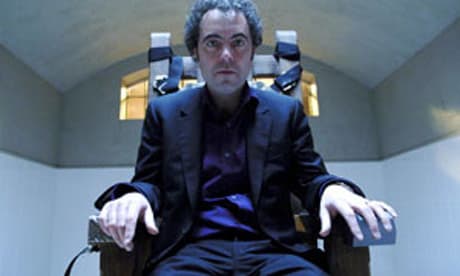The new BBC series Jekyll is a modern sequel to Robert Louis Stevensons classic schizoid tale The Strange Case of Dr. Jekyll and Mr. Hyde. Written by Stephen Moffat, who has contributed some of the most memorable scripts to the BBCs new Doctor Who series ("The Empty Child, "Girl in the Mirror, "Blink), Jekyll is a worthy successor to Stevenson's original tale. The story revolves around Dr. Tom Jackman (James Nesbitt), a modern day descendant of the original Dr. Jekyll. After years of strange occurrences, Dr. Jackman begins to have blackouts and knows something is amiss. After taping himself during these blackout sessions, Dr. Jackman realises that hes transforming into someone else, develops a communication system with his bodys other inhabitant and establishes a set of rules to keep his rabid alter ego in check. As Dr. Jackman tries to understand what is happening, he uncovers an elaborate conspiracy surrounding his life and must learn to work together with Hyde if they hope to survive. Jekyll is dark and, at some points, quite disturbing. Nesbitt gives a startling performance in dual roles, forgoing elaborate make-up to signify the character change, instead relying on a change in posture and expression to convey the switch from Jackman to Hyde. Moffats script is smart and provocative, though the audience must be willing to suspend disbelief and overlook some of the problems inherent in a body-switching story. The two-disc, six-episode set is light on extras, with commentaries for only episodes one and four, and a "Retelling the Story featurette. Still, Jekyll is a must see for sci-fi and horror fans who like intelligent, well written television.
(BBC)Jekyll

BY Brendan WillisPublished Jul 27, 2007